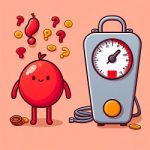During the National Day holiday, many people often stay up until one or two in the morning and only get up around lunchtime. Now that the holiday is over and work has resumed, many are struggling to readjust their biological clocks, finding it hard to wake up in the morning and difficult to sleep at night, leading to fatigue and exhaustion at work. Adjusting one’s biological clock quickly is crucial at this stage.
While relying solely on food to aid sleep isn’t particularly effective and varies from person to person, many foods can still benefit sleep. Here is a list of recommended foods, poor habits to avoid, and a supermarket shopping list of 40 items. Take notes!
Main Cause of Insomnia
The primary reasons for insomnia include:
- Tension
- Anxiety
- High stress
Studies show that one in three office workers occasionally suffer from insomnia, and one in ten suffer from chronic insomnia. Insomniacs are also more prone to gaining weight, likely because when people are tired, they subconsciously eat to recharge their bodies. Therefore, to stay slim and beautiful, one must get good sleep!
Foods Potentially Beneficial for Sleep
Category 1: Tryptophan-rich Foods
Tryptophan converts into two sleep-related chemicals in the body:
- Melatonin: Helps regulate the sleep cycle.
- Serotonin: Produces a relaxing effect.
Examples:
- Egg Whites: If you usually eat eggs in the morning, try having them in the evening to see if it makes a difference.
- Soy and Soy Products: Including tofu and soy milk.
- Poultry: Chicken, duck, goose, etc.
- Low-fat Dairy: Low-fat milk, yogurt, cheese, etc.
- Nuts: Walnuts, flaxseeds, pumpkin seeds, sunflower seeds, black sesame seeds, almonds, etc.
Category 2: Vitamin-rich Foods
Especially those rich in Vitamin B6, which is related to melatonin production.
Examples:
- Salmon: Fish are rich in Vitamin B6.
- Tuna: Melatonin is produced in dark conditions, so consider eating fish for dinner.
Category 3: Mineral-rich Foods
Foods rich in calcium, potassium, and magnesium.
Examples:
- Yogurt: Dairy products are rich in tryptophan and calcium, which can stabilize nerves and promote sleep.
- Kale: This green vegetable is also rich in calcium.
- Bananas: Rich in potassium and magnesium, which help calm and promote sleep.
- Whole Grains: Rich in magnesium, low magnesium levels can lead to nighttime awakenings.
Category 4: Antioxidant-rich Foods
Fruits rich in antioxidants may counteract oxidative stress caused by sleep disorders.
Examples:
- Berries: Blueberries, raspberries, pomegranates, guava, etc.
- Kiwi: May improve sleep duration for those with sleep disorders.
Category 5: Melatonin
This endogenous hormone regulates the body’s natural sleep-wake cycle. However, exogenous melatonin supplements may not be effective for everyone.
Category 6: Other Recommendations
- Oatmeal + Low-fat Milk: Contain complex carbohydrates, protein, and low-fat foods that may promote serotonin and melatonin production.
- Warm Milk: There may be a psychological effect from the warmth, creating a relaxing atmosphere.
- Alpha-lactalbumin: Small studies suggest that consuming this in the evening may reduce morning drowsiness and improve attention.
Poor Eating Habits That Can Disrupt Sleep
While evidence supporting sleep-aiding foods isn’t strong, there’s clear evidence for eating habits that can disrupt sleep:
- Caffeine Before Bed: Avoid caffeine within six hours of bedtime.
- Spicy Foods Before Bed: Avoid eating spicy foods before bedtime.
- Drinking Too Much Water: Avoid drinking too much water to prevent waking up at night to use the restroom.
- High-fat and Sugary Foods Before Bed: Avoid these within two hours of bedtime.
- Alcohol Before Bed: Alcohol may initially make you sleepy but can reduce sleep quality.
Supermarket Shopping List for 40 Healthy Foods
Staples:
- Whole grains (brown rice, whole wheat pasta, quinoa, oats, black rice, purple rice, etc.)
- Sweet potatoes, purple potatoes
High-quality Proteins:
- Eggs, poultry, tofu, salmon, tuna, trout
Dairy:
- Low-fat milk, skim milk, low-fat yogurt, soft cheese
Vegetables:
- Kale, lettuce, bell peppers
Fruits:
- Berries (blueberries, raspberries, pomegranates, guava, grapes)
- Kiwi, bananas, cherries
Snacks:
- Unsalted nuts (almonds, walnuts, cashews, pistachios, pecans)
- Seeds (pumpkin seeds, sunflower seeds, flaxseeds, black sesame seeds)
Drinks:
- Milk (heat at home), green tea, chamomile tea
Nutritional Advice
The effectiveness of foods on sleep varies by individual. Consuming nutritious foods is always beneficial. If a specific food helps you, such as a glass of warm milk before bed, continue with that habit. However, serious insomnia should be addressed by a neurologist.
Maintain a healthy diet, consume fresh fruits, vegetables, whole grains, and low-fat proteins, keep a healthy weight, exercise regularly, and manage stress. Wishing everyone restful nights!


